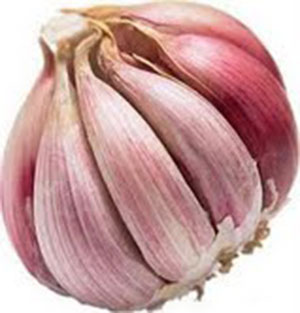Research on garlic indicates that it may provide an ideal low-cost and safe alternative to drugs and vaccines in reducing three most common causes of death in the world.
In a world mesmerized by the false promises of pharmaceutical industry marketing copy, as well as inundated with aggressively marketed dietary supplements, many of which are manufactured by the same companies making a killing off patented chemicals (Bayer owns One A Day, Pfizer owns Centrum), it is reassuring to know that the kitchen pantry will never fail us…
Inexpensive, time-tested, safe and delicious, many spices are attaining recognition for being, quite literally, ‘life saving,’ which is likely one reason why, in ancient times, many were worth their weight in gold.
This time around, the health benefits of ancient ‘folk remedies’ like garlic are being confirmed by straight-laced men and women in lab coats. Which, when it comes to the conventional medical establishment, blighted as it is by the epistemological disease known as myopia, is considered the only valid way to ascertain the truth. Never mind the countless millions of people who, since the beginning of time, have used a different standard of proof: if it works and it is safe, then it’s true.
We all know that garlic is not shy to make its presence known. The smallest culinary dose is enough to suffuse the entire body with its aroma. Garlic also permeates the research literature: the biomedical database known as MEDLINE, provided by the National Library of Medicine, contains 4245 study abstracts on garlic, a number of which we have indexed and organized for your use on our site: Health Benefits of Garlic.
A cursory perusal of the literature there indicates that garlic has a significant role to play in treating well over 150 health conditions, ranging from cancer to diabetes, infection to plaque buildup in the arteries, DNA damage to mercury poisoning.
In fact, a strong argument can be made (pun intended) that expanding the availability of garlic around the world as both a food and a medicine could prevent millions of deaths annually. According to World Health Organization statistics, the populations of poorer countries die manly from causes directly connected to communicable infectious diseases, which incidentally are not caused by a lack of vaccines, rather, primarily through under-nutrition and malnourishment, lack of sanitation and hygiene, as well as the adverse physiological consequences of the depression and stress associated with poverty. The greater use and availability of garlic might provide a perfect alternative to global vaccine initiatives, the use of which are driven less by compelling scientific research, and more by political and economic forces. Garlic is easier to acquire and distribute, and can often be grown by the affected persons or communities affected, making it essentially free.
Source: science daily
B.N

